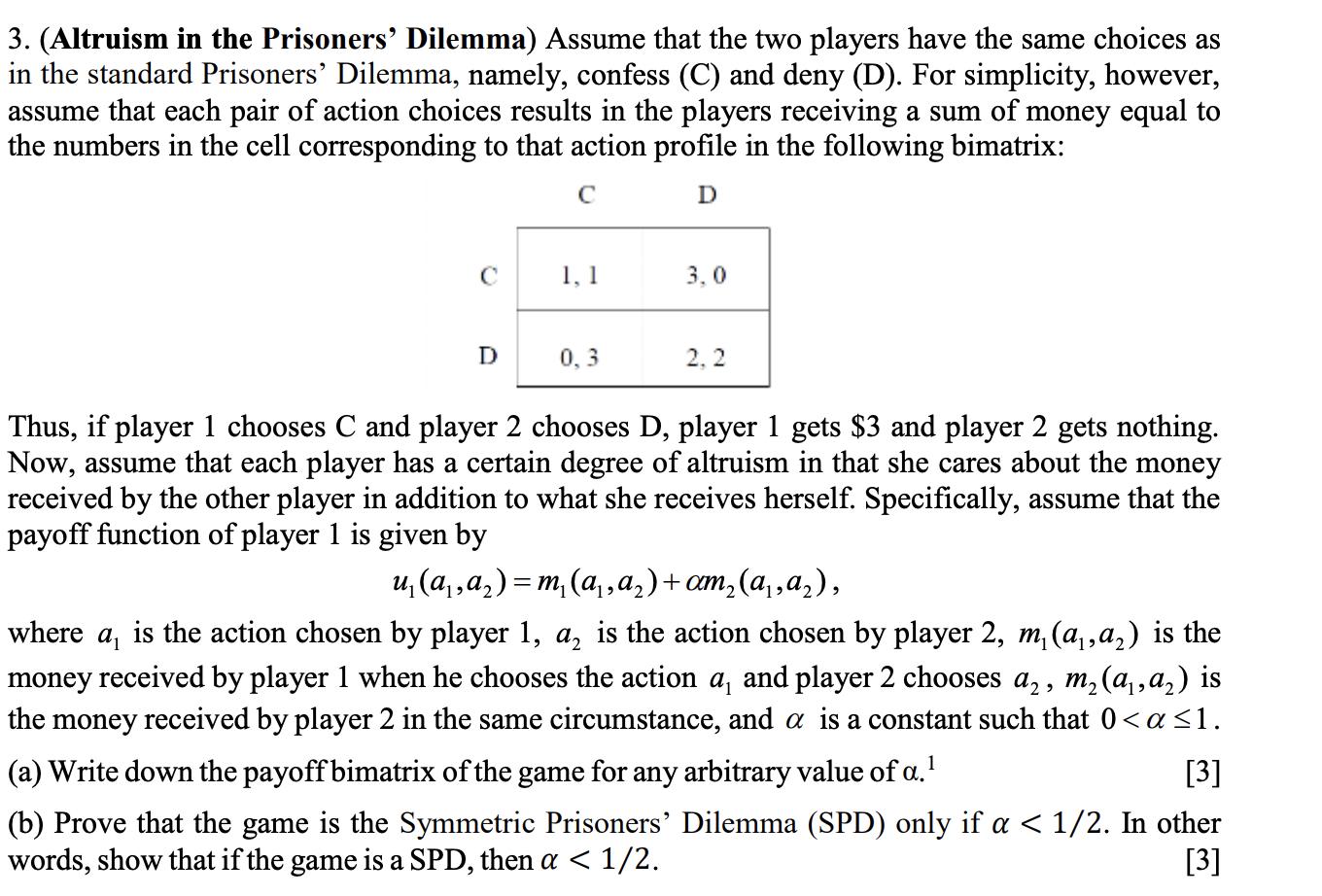Answered step by step
Verified Expert Solution
Question
1 Approved Answer
3. (Altruism in the Prisoners' Dilemma) Assume that the two players have the same choices as in the standard Prisoners' Dilemma, namely, confess (C)

3. (Altruism in the Prisoners' Dilemma) Assume that the two players have the same choices as in the standard Prisoners' Dilemma, namely, confess (C) and deny (D). For simplicity, however, assume that each pair of action choices results in the players receiving a sum of money equal to the numbers in the cell corresponding to that action profile in the following bimatrix: C D C 1,1 3.0 D 0,3 2.2 Thus, if player 1 chooses C and player 2 chooses D, player 1 gets $3 and player 2 gets nothing. Now, assume that each player has a certain degree of altruism in that she cares about the money received by the other player in addition to what she receives herself. Specifically, assume that the payoff function of player 1 is given by u(a,a)=m(aa)+m(aa), where is the action chosen by player 1, a2 is the action chosen by player 2, m (a, a) is the money received by player 1 when he chooses the action a, and player 2 chooses a, m(a, a) is the money received by player 2 in the same circumstance, and a is a constant such that 0
Step by Step Solution
There are 3 Steps involved in it
Step: 1

Get Instant Access to Expert-Tailored Solutions
See step-by-step solutions with expert insights and AI powered tools for academic success
Step: 2

Step: 3

Ace Your Homework with AI
Get the answers you need in no time with our AI-driven, step-by-step assistance
Get Started


